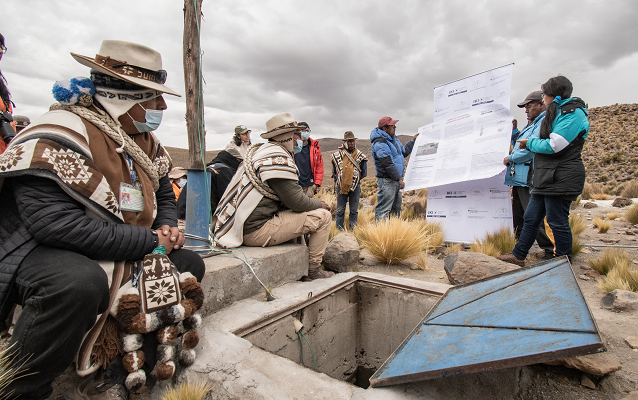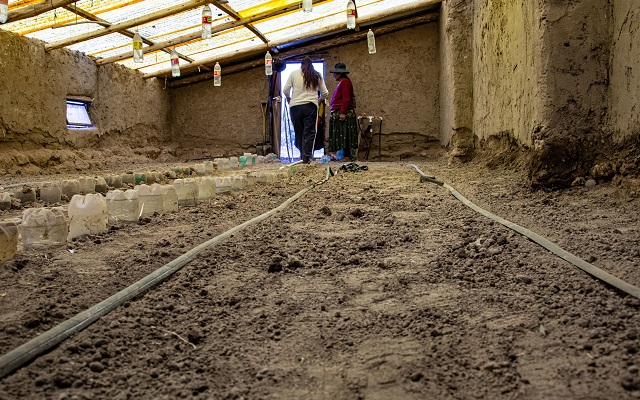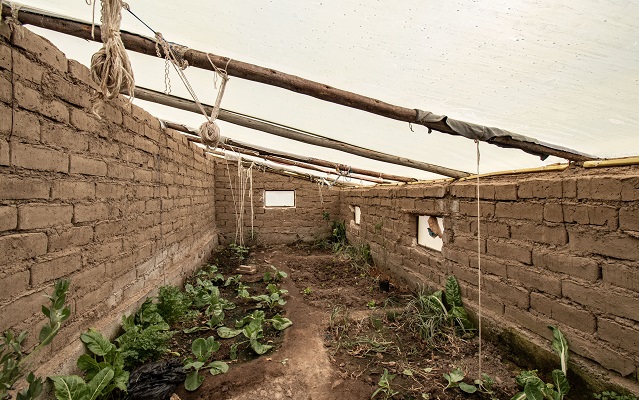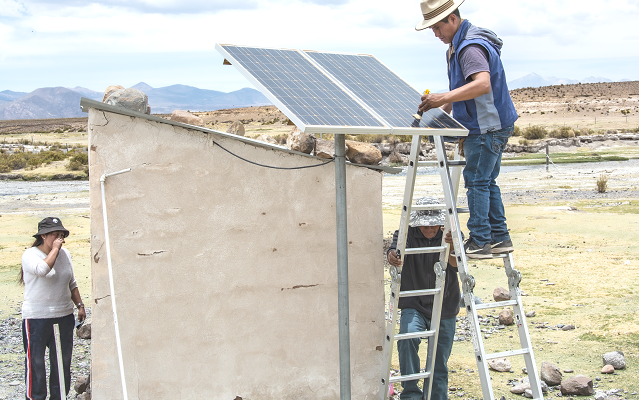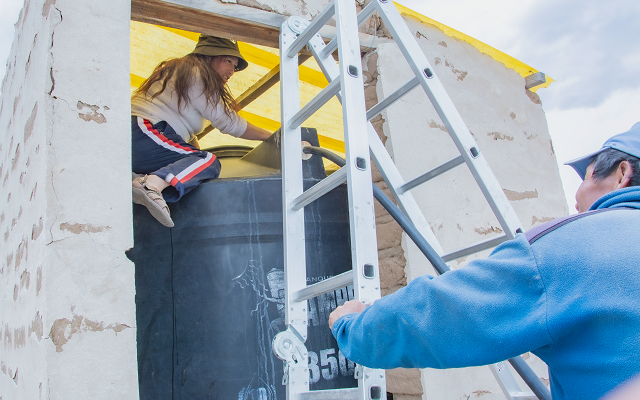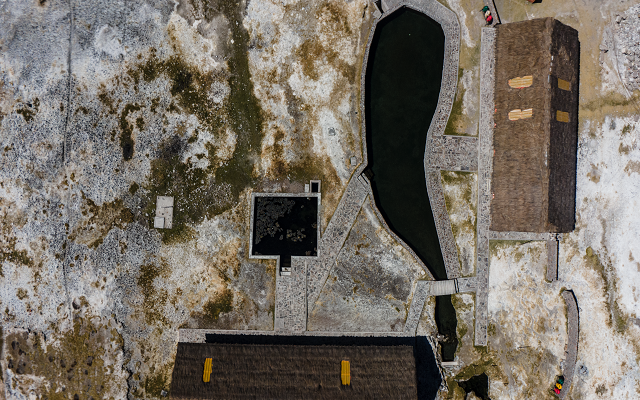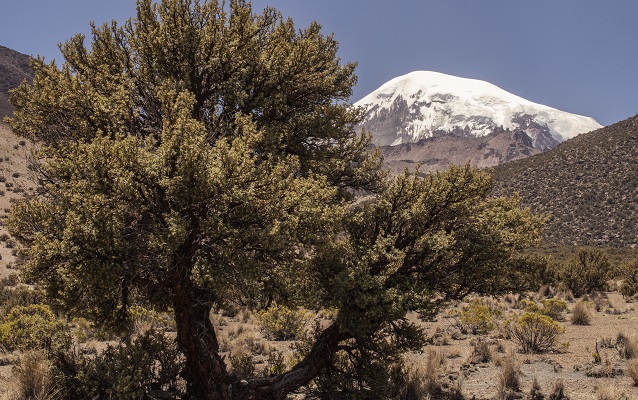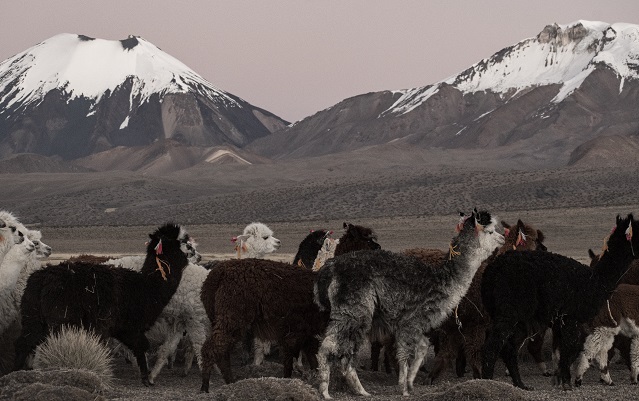Andean water towers Knowledge Centre for Climate Change Adaptation (AKCC)
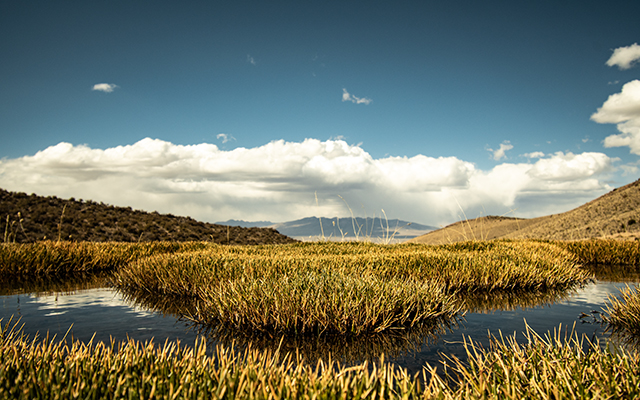
Glaciers in the tropical Andes region in Bolivia have been shrinking for several decades. But public information on climate related indicators, like the glacier melt, for the region are missing. The establishment of an “Andean knowledge centre for climate change adaptation” at the Sajama National Park in Bolivia has the goal to build partnerships and networks to foster science-based climate actions. It will allow for a better use of research and operational knowledge in the climate sector. The centre encourages the development of innovative tools and practices for strengthening resilience and reduce vulnerability to adverse impacts of climate change in Andean indigenous communities. It further supports their effort to enhance adaptive capacities by implementing nine adaptation pilot projects, including e.g. the establishment of solar water pumps or nature infrastructure for rainwater harvesting.
INITIAL SITUATION
Glaciers in the tropical Andes have been retreating for the past several decades. Bolivia is home to almost 20% of tropical glaciers worldwide and one of the most vulnerable countries in terms of glacier loss, which in turn influences a wide range of ecosystems. Particularly affected is the Central Andean Mountain region, defined as Puna-Altiplano where the mountain cryosphere lost large amounts of glacier mass. Sajama Water Tower glacier has lost 50% of its surface since 1986. Along with six other mountains, their glacier loss is affecting water availability and ecosystem conservation in the region. Farmers, breeders, and especially indigenous communities depend on these ecosystems for their economic, social, and cultural wellbeing.
Bolivia´s data and information base about climate change and water resources are dispersed and neither a learning centre nor a repository of information are established.
TARGET GROUP
Key stakeholders and primary beneficiaries of the project are mainly the population inside the Sajama National Park (Sajama, Manasaya, Lagunas, Caripe, Papelpampa) and the local municipal governments in the Province (Gobierno Autónomo de Curahuara de Carangas and Gobierno Autónomo Municipal de Turco).
Sajama province is the territory of 23 Aymara indigenous communities with extreme poverty and high vulnerability in the face of climate change. The population reaches 10.000 inhabitants. The project targets these communities as main beneficiaries.
The communities of Sajama National Park as well as the municipal governments of the province have an important history of work and collaboration with the implementing institution and participate directly in various adaptation initiatives.
APPROACH AND ACTIVITIES
The project aims to establish the first “Andean Knowledge Centre for Climate Change Adaptation” (AKCC) in Bolivia, currently called Yatiñ Uta Knowledge Centre which means “house of the knowledge” in Aymara, the native language of the region. The Yatiñ Uta Knowledge Centre is located in the Southwestern department of Oruro, at Sajama National Park. This centre, should act as a facilitator to transform data into action through the implementation of a public web page that includes a comprehensive geo-database and a virtual library that provides information on the effects of climate change, risk management, adaptation strategies, tools and practices. This web page helps to educate and build capacities to the next generation of local and Andean key stakeholders. They are informed about the adoption of new technologies, tools and strategies for strengthening resilience.
In addition, this center becomes a place of unity, closeness and collaborative work, where local and non-local people meet to grow as a global community conscious of respect, awareness and experience in Andean ancestral life. Considering that this space offers great potential for conducting training workshops, they will be implemented inside and outside the center, taking advantage of the different ecosystems and study areas of Sajama National Park. These trainings will address different topics, mainly climate change adaptation in social, cultural and economic areas (including decision-making, good adaptation practices and technical information processing).
Finally, an important part of the project approach is to implement pilot adaptation projects in the province. To do so, part of the project activities is to encourage 2 subnational institutions, 5 non-governmental organisations and 15 indigenous communities to use the Geographic Information System (GIS) -based information system generated by the project in their planning instruments, strategy papers, adaptation actions and other climate change related activities.
To reach this goal the project designs and implements nine pilot adaptation projects in six Aymara communities. These pilot projects use innovative tools and practices to strengthen resilience and to reduce vulnerability to adverse impacts of climate change. Examples of adaptation projects include:
- Nature infrastructure for rainwater harvesting.
- Rainwater harvesting collection from public buildings.
- Solar power pumping wells.
- Wetland conservation and management.
LATEST PROJECT HIGHLIGHTS AND IMPACTS
- Project finalized.
- 288 stakeholders reached (46 % female) through seven different training capacities, emphasizing topics related to climate change, adaptation, and environmental education.
- pilot project to optimise a water extraction pump supplying 12 students and their teaching staff
CAPACITY DEVELOPMENT
IKI Small Grants supports “Agua Sustentable” in their organisational capacity development through:
- The training of technical staff in programming and big data processing (R, Python)
- An evaluation of internal control processes (higher efficiency in time schedules for internal processes)
ABOUT THE ORGANISATION
“Agua Sustentable”, established in 2004, is a non-profit institution whose purpose is to contribute to the sustainable management of water and the environment at national and international level. Its work focuses on the construction of knowledge, policies, institutions, and legal norms aimed at generating collective well-being, socio-economic, and environmental development of local populations. These lines of action are achieved by developing and strengthening social and communal capacities. Agua Sustenable promotes citizen responsibility in the care and the participatory management of watersheds and water sources as well as the services derived from their use. The institution is guided by the principle of the realisation of the human right to water, understood as human consumption and productive activities related to food security and the environment.

